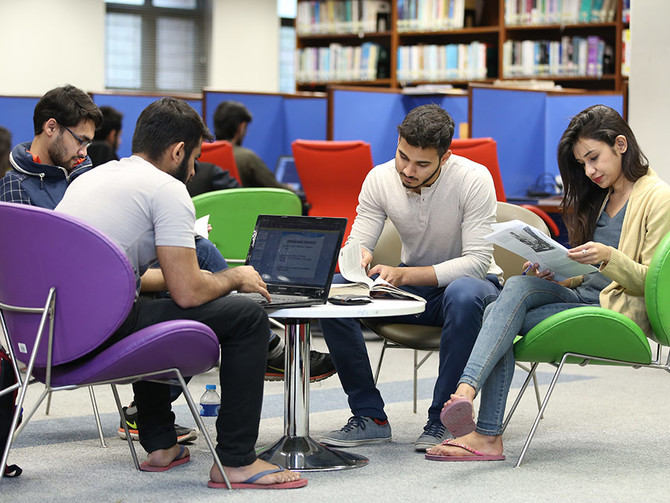ISLAMABAD: Saudi Arabia’s Cultural Attaché to Pakistan has said there are plans to offer new scholarships to increase the number of Saudi students coming to study in Pakistan, a move aimed at strengthening people-to-people and cultural ties between the two nations.
Pakistan and Saudi Arabia have been staunch allies for decades and the latter has a history of bailing Pakistan out financially. In recent years, efforts to enhance cultural ties have also been enhanced. Around three million Pakistanis currently live in Saudi Arabia.
“Insha’Allah [god willing] we plan to bring Saudi students to study here, in engineering and medical colleges, since there are excellent universities here,” Dr. Ali Mohammed B. Hawsawi told Arab News in an interview in the run-up to the Saudi crown prince’s visit to Pakistan.
The cultural envoy said Pakistan and Saudi Arabia were exploring new educational avenues, including more scholarships for Saudi Arabian nationals to study in Pakistan, joint research ventures and faculty exchange programmes between universities in both nations.
“I have visited some universities and Insha’Allah will visit more in Lahore,” Hawsawi said. “We hope to build relationships and collaborations between our universities in research and across academic operations.”
Last year, Saudi Arabia announced 583 fully funded scholarships for Pakistani students in all disciplines, except health and medicine, at 23 top universities in the Kingdom. The Higher Education Commission of Pakistan will process all applications and award 400 scholarships for bachelors, 100 for masters and 83 for PhD students wanting to pursue an education at Saudi universities.
“I expect a list of [Pakistani] students will arrive at my office within two to three weeks, we will send it [applications] to the ministry of education in Saudi Arabia,” Hawsawi said. “Then Insha’Allah we will receive Pakistani students, which we are glad and very happy to welcome from next year.”
Hawsawi said students coming to Saudi Arabia would be provided everything from tickets and monthly stipends as well as accommodation and books.
“Everything will be free for him or her,” he said. “Scholarships between Saudi Arabia and Pakistan have a long history; they started many, many many years ago and you see many graduates of Saudi here today in Pakistan,” he said.
Previously, students from Pakistan were limited to pursuing Islamic studies and Arabic languages in the cities of Mecca, Medina and Riyadh but now, Hawsawi said, they could study all subjects across universities in Saudi Arabia.
“Now studies are open in everything: science, biology, all the subjects. Similarly, the whole country is now open to [Pakistani] students,” he said. “Through my office we are finding and have found universities across Saudi Arabia who can give scholarships.”
Hawsawi said Saudi Arabia was home to a large Pakistani diaspora, and similarities in culture had created lasting bonds between the two nations.
“In Saudi Arabia there are almost 3 million Pakistanis and Alhumdulilah no one feels out of place,” he said. “Especially with Mecca and Medina: Pakistani students are very happy when they find a chance to go there.”
“A [Pakistani] student in Saudi Arabia will feel like he or she is in their own country; there is comfort in this,” Hawsawi said. “In eating, drinking and worship, our mosques, masjids -- the student won’t find or feel that he is in a strange place.”
















